18 April 2024
Rebecca Palmer is a PhD student investigating the lung’s multi-faceted immune response to provide a holistic understanding of how the lung adapts to different types of infections.
“A lot of the research that’s has been conducted both here at the Malaghan Institute and globally is related to specific cells within the lung and how they respond to infections,” says Rebecca.
“My project is looking at the lung as a whole to understand how this complex organ defends itself in infections.”
Branching out from our windpipe, the lungs are elaborate structures flanking either side of our heart. They are the surface of gas exchange in the body. Oxygen from the air we breathe in is absorbed, while carbon dioxide and water, by-products from extracting energy from food, are breathed out. With its extensive branching structures, folded compactly between our ribcage, the total surface area for gas exchange can be as much as 140m2. That’s a total area equivalent to a 2-bedroom house!
“As you can imagine, an area this large in our bodies that comes into direct contact with the air we breathe can make us vulnerable to attack from invisible threats like viruses and bacteria,” says Rebecca.
“Our lungs have intricate structures, specialised cells and fine-tuned processes to make themselves a stronghold that protects us from the onslaught of potential threats.”
Rebecca’s work may shed light on the specific responses the lung uses to protect us from disease so that we understand what constitutes an effective immune response in a holistic way.
“We’re hoping eventually this will help us to tailor vaccines and therapies that are more effective at combating diseases that affect the lung.”
“What’s more, the lungs don’t just have a one-size-fits-all immune response. The immune responses are nuanced according to the type of threat.”
Rebecca wants to understand how these immune responses differ between different types of infectious agents.
“My project will look at responses in the lungs to viral influenza infection and parasitic hookworm infection,” says Rebecca.
Both viruses and parasites affect the lung in very different ways. Viruses are usually breathed in through the respiratory system and mount attacks on the lung by hijacking the body’s cells and replicating rapidly.
Parasites are much larger and enter the lung after biting into the skin and circulating through the blood. They burrow through the blood vessels to the lung where they break through into the lung space, to become coughed up, swallowed and reside in the gut.
Rebecca’s PhD research aims to map out what the distinct immune responses are on a molecular, cellular and tissue level. She will be looking at measuring the changes that occur before, during and after infection.
“This research may provide insight into the variability in symptoms and severity between different individuals infected with the same pathogen.”
“Currently I’m developing the techniques to measure a broad range of parameters to give us an idea of what’s happening on a whole-organ level.”
“This means I’m not exclusively looking into immune cells but also components of the lung that are not classically associated with the immune system, yet still play a role in protecting against infection.”
“I’ll be measuring the amount and location of virus in the infected lung, how and where cells migrate during the infection, processes such as inflammation and how cells recover from infection.”
As her research progresses, Rebecca and her team, led by Dr Kerry Hilligan, also want to understand how the lung deals with concurrent infections.
“How do the lungs respond to two different infectious agents acting at once? Does response to one threat help overcome another completely different type of threat?”
This is currently an area of research that we know little about. Yet, as the years since the start of the Covid-19 pandemic have reminded us, infections reaching the lung can have detrimental, often long-term consequences.
“We’re hoping eventually this will help us to tailor vaccines and therapies that are more effective at combating diseases that affect the lung,” says Rebecca.
“This research may provide insight into the variability in symptoms and severity between different individuals infected with the same pathogen.”
Prior to starting her PhD, Rebecca was working as a Research Officer in the Ronchese lab where she was researching dendritic cells, a cell that communicates between different parts of the immune system.
“I hope I can combine the detailed, cell-specific research skills I learned from my previous work to my PhD to get both depth and breadth of understanding of the lungs and contribute effectively to this body of knowledge,” says Rebecca.
Hailing from Palmerston North, Rebecca always loved science as well as theatre.
“Pursuing both science and theatre meant I could satisfy both my analytical, technical side and my creative, extroverted side.”
At the end of high school, she had to make the tough decision to do one or the other. After considering joining a theatre company on a cruise ship, she eventually decided to go to Te Herenga Waka – Victoria University of Wellington to pursue an undergraduate and then a Master’s in Biotechnology.
“Once I started my course, I couldn’t imagine doing anything else. Biotechnology is such a broad field with so many potential applications, it was here that immunology captured my interest.”
While her days are filled with the thrill of scientific research, probing the secrets of lung defence, her love of theatre has found a way to shine through.
Before and after coming to work on her PhD at the Malaghan Institute, Rebecca squeezes in time to lead high-octane group fitness classes as an instructor at Les Mills gyms.
“For me being a fitness instructor is a way to satisfy my extroverted side, it taps into my love for theatre and ensures that part of me stays alive,” says Rebecca.
“Conducting medical research and being a fitness instructor is incredibly rewarding because both activities, though completely different, have the potential to improve people’s quality of life.”
Related articles
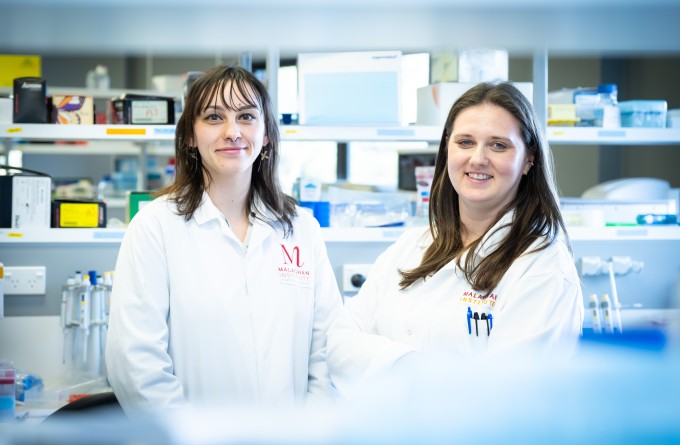
Winter and the immune system
23 June 2025
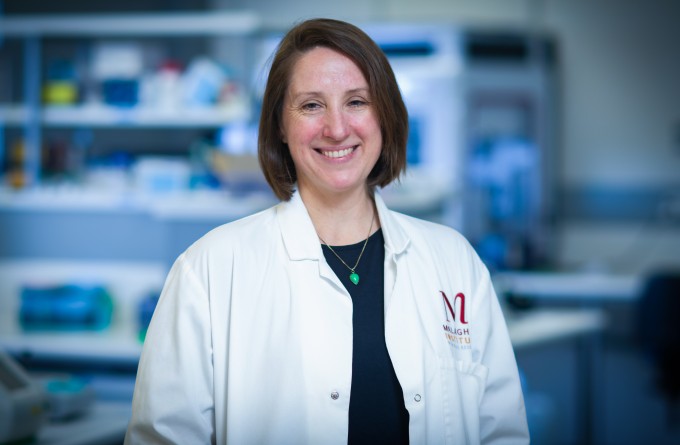
New research group taking aim at ageing immunity
20 June 2025
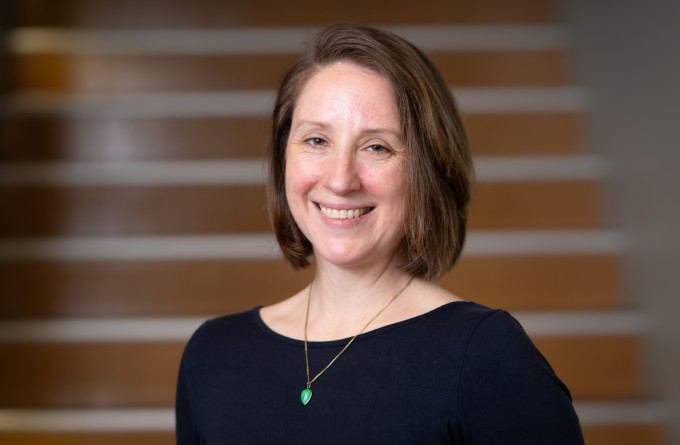
Dr Michelle Linterman: Asking the age-old question
30 April 2025
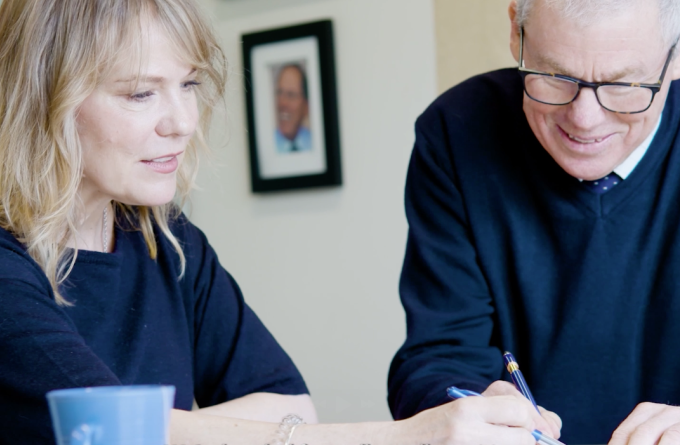
Kjesten Wiig: bringing life-changing treatments to life
27 February 2025
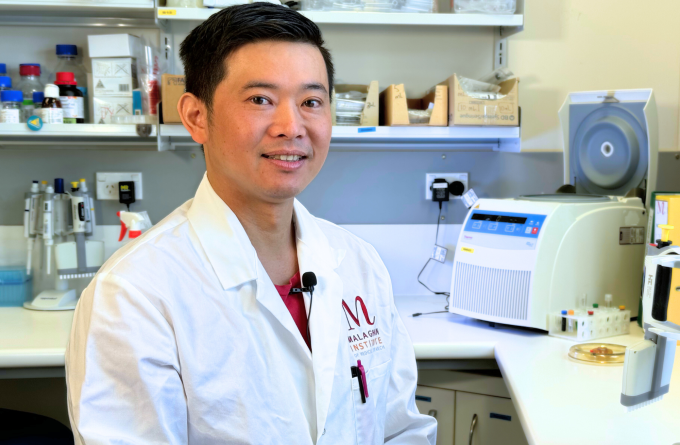
Fighting allergic skin disease at its root
17 December 2024
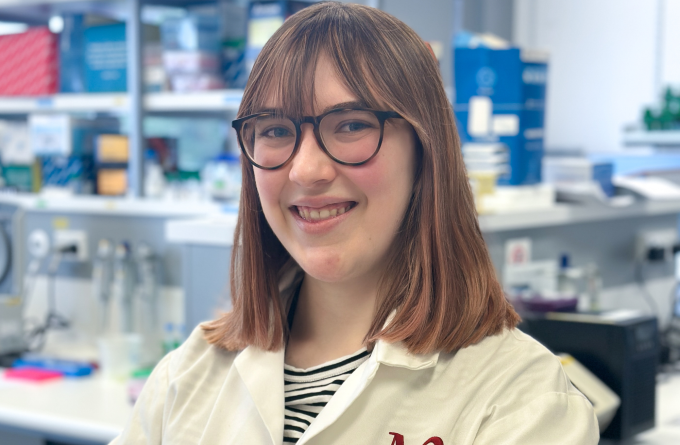
As easy as breathing: the future of vaccines
31 October 2024
